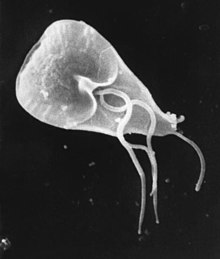Living organisms that thrive at the expense of another – that’s the essence of a parasite. While the thought of them hitching a ride inside us might send shivers down spines, the reality is that many parasites co-exist with humans in a relatively harmless way. In fact, estimates suggest that up to two billion people worldwide are infected with some form of parasite, often without experiencing any noticeable symptoms. Let’s delve into the fascinating, and sometimes unsettling, world of these hidden roommates.
Microscopic Munchers: Protozoa
These single-celled critters are like tiny Pac-Mans, gobbling up nutrients from our intestines. Giardia, for example, is a notorious protozoan culprit, often picked up from contaminated water or poor sanitation. While it can cause unpleasant diarrhea and cramps, most healthy individuals clear the infection on their own.

Worms of Many Shapes and Sizes: Helminths
Helminths, also known as parasitic worms, come in a variety of shapes and sizes, from the spaghetti-like tapeworms to the microscopic pinworms. Some, like hookworms, latch onto the intestinal wall and feed on blood, while others, like roundworms, migrate through tissues, potentially causing organ damage. Thankfully, most helminth infections can be effectively treated with medication.

Skin Savvy: Ectoparasites
These freeloaders prefer the outside world, living on or just beneath our skin. Lice, mites, and scabies are all common examples, causing itching and irritation as they burrow or feed. While not inherently dangerous, ectoparasites can be a nuisance and spread easily through close contact.

Living Together: The Mutually Beneficial
It’s not all doom and gloom in the world of parasites. Some research suggests that certain gut worms might actually play a role in regulating our immune system and preventing allergies. And who can forget the tiny water bears, not technically parasites, but extremophiles that can survive in the harshest environments, even hitching a ride on humans!

Sharing, But with Limits
While most parasite infections are mild or asymptomatic, some can cause serious health problems if left untreated. It’s important to be aware of the risk factors, such as travel to high-risk areas, poor sanitation, and compromised immune systems. If you experience persistent digestive issues, unexplained weight loss, or other concerning symptoms, consult a healthcare professional for proper diagnosis and treatment.
Living with parasites might sound unsettling, but understanding their diversity, potential impacts, and the delicate balance we often share offers a fascinating glimpse into the complex web of life. Remember, knowledge is power, and armed with the right information, we can navigate the world of these unseen inhabitants with both awareness and appreciation.
So, the next time you ponder the microscopic world, remember, you might be sharing your space with more tiny critters than you ever imagined. But fear not, most are harmless, and a little understanding can go a long way in fostering a peaceful coexistence!